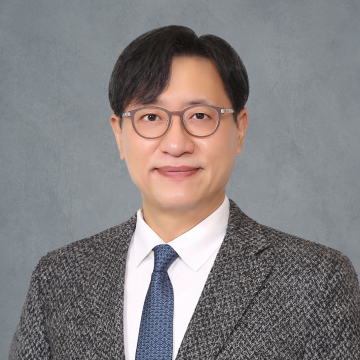Refusal of Unauthorized E-Mail Collection
using an e-mail collection program or other technical devices.
Violators may be punished in accordance with the Act on Promotion of Information
and Communications Network Utilization and Information Protection, Etc
Spearheading the Future Energy Market with Low-Cost, High-Efficiency Green Hydrogen Production Systems

-
Affiliation
Yonsei University Department of Materials Science & Engineering
-
E-Mail
jmoon@yonsei.ac.kr
- Homepage
Award-winning achievements
Professor Jooho-Moon from Yonsei University's Department of Materials Science & Engineering has pioneered the world's first 'solar cell-photoelectrode water splitting device,' which utilizes semi-transparent solar cells capable of adjustable transmittance to produce hydrogen from water without external voltage. While traditional 'solar-to-hydrogen production systems' were constrained by the high costs and low efficiencies due to expensive semiconductor materials and complex manufacturing processes, Professor Moon's development of stacked tandem materials has enabled green hydrogen production at low cost and high efficiency using inexpensive semiconductors.
Moreover, Professor Moon introduced chiral organic substances into organic-inorganic perovskites, bestowing them with chiro-optical properties for the first time globally. By innovatively applying this approach to water splitting, he has established a new paradigm in hydrogen production that utilizes the spin characteristics of electrons, thereby dramatically enhancing the efficiency of green hydrogen production. Recently, he succeeded in developing new photoelectrodes by elucidating the mechanism of chirality transfer in synthesizing metal oxides and applying chiral materials based on metal oxides to photoelectrodes.
Moving forward, Professor Moon's research is expected to have a lasting impact on establishing a sustainable solar-to-green hydrogen production system through technological convergence and integration. The study is also anticipated to significantly contribute to realizing a carbon-neutral society by 2050 while expanding into related areas such as solar fuel production.
Professor Moon, a global leader in solar hydrogen production research, has published over 280 papers with an h-index reaching 80. He has also remarkably contributed to industrial development by transferring multiple technologies to domestic enterprises. With active international collaborations across various leading research groups, he consistently produces impactful research findings.
Education and career
- 1986 ~ 1990 B.S in Ceramic Engineering, Yonsei University
- 1992 ~ 1995 M.S in Materials Engineering, University of Florida
- 1992 ~ 1996 Ph.D. in Materials Engineering, University of Florida
- 1996 ~ 1998 Post Doctral Associate, MIT Materials Processing Center, USA
- 1998 ~ 2000 Visiting Researcher, AIST, Nagoya, Japan
- 2000 ~ Professor, Department of Materials Science & Engineering, Yonsei University
- 2007 ~ 2008 Visiting Professor, University of Washington
- 2015 ~ Associate Editor, ACS Applied Materials & Interfaces